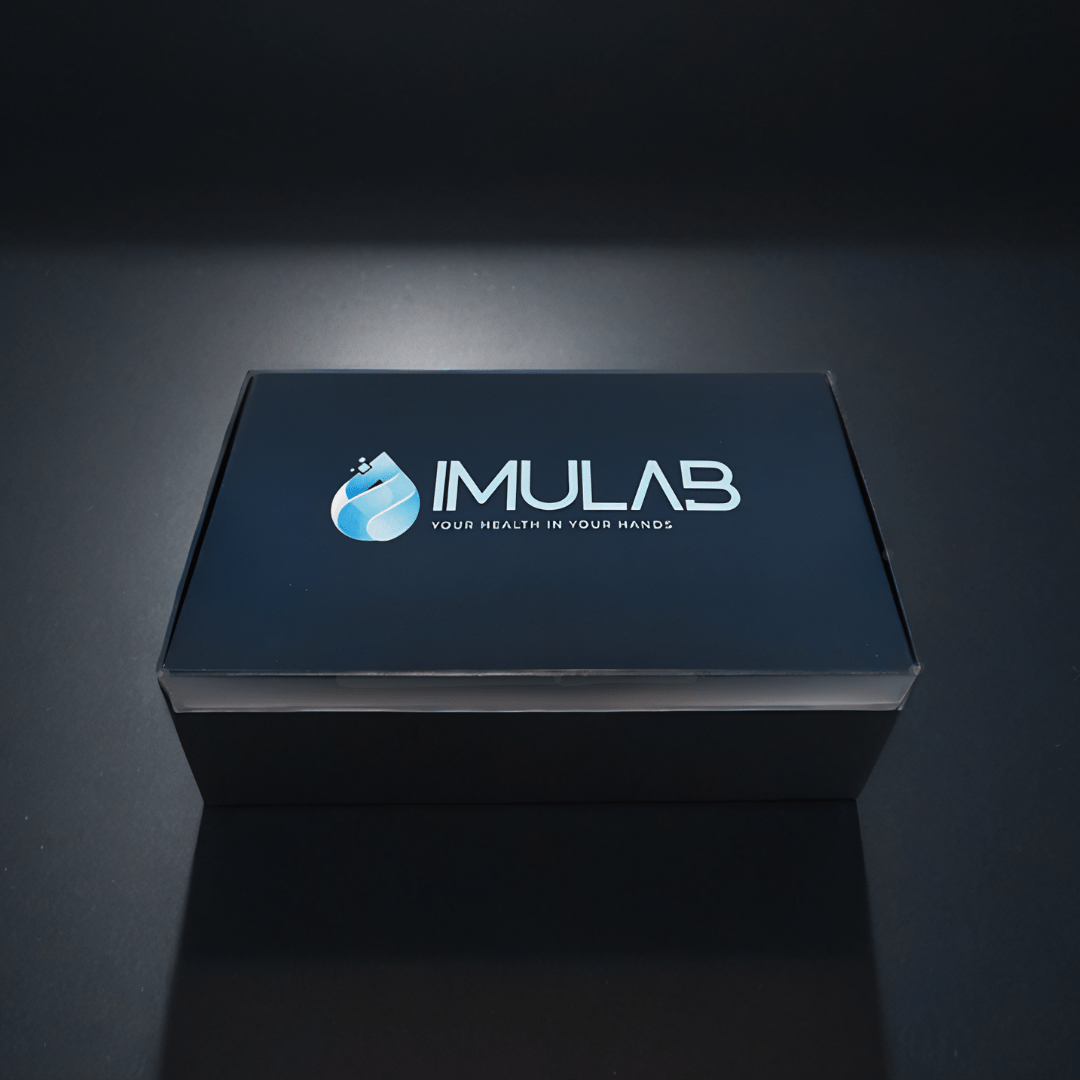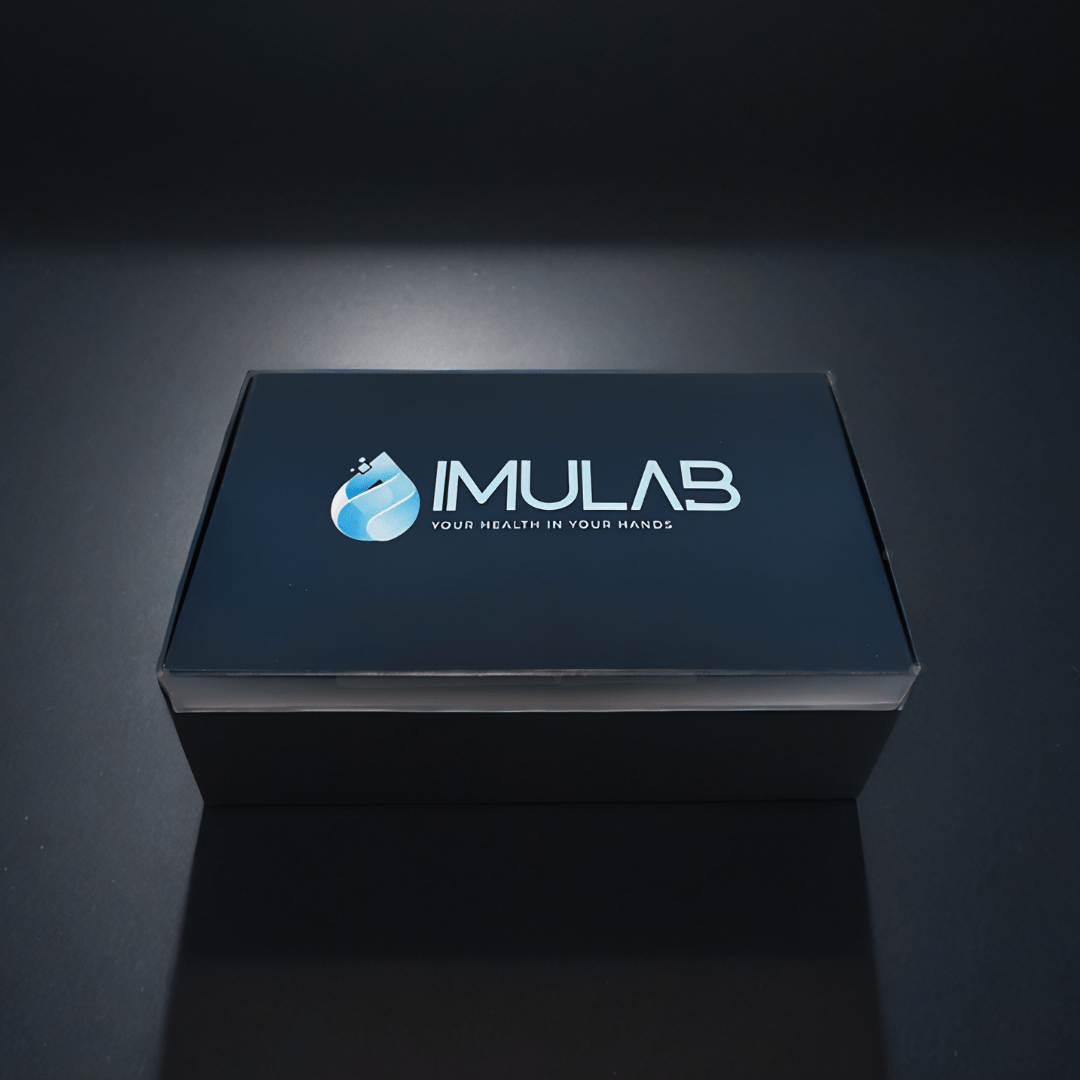IMULAB
Men Sports Performance Complete
Men Sports Performance Complete
How do you want to take your sample?
Please choose one option below-
Sample collection at a Superdrug Clinic +£35.00
Visit one of Superdrug's clinics across the UK where a healthcare professional will take your sample from a vein in your arm. We’ll email you instructions on how to book after we’ve processed your order.
-
Sample collection at home with a nurse +£59.00
Book an appointment for one of our nurses to visit your home and take your blood sample from a vein your arm.
-
Sample collection with your own healthcare professional Free
Make an appointment with a healthcare professional of your choice to have your venous blood sample taken. You will be responsible for arranging your appointment and any additional fees.
Couldn't load pickup availability
✅ Results expected within 4 working days
Our Men Sports Performance Blood Test offers an extensive health assessment, including advanced profiles for hormone health, thyroid function, and sports nutrition.
Why Choose This Test?
Whether you're an athlete, fitness enthusiast, bio-hacker, or simply striving for peak performance, this test provides a detailed overview of your health and well-being. It’s perfect for those looking to optimise their diet, fine-tune their training programme, and track their progress over time.
What’s Included?
This comprehensive test covers:
-
Adrenal hormones
-
Autoimmunity markers
-
Cholesterol status
-
Clotting status
-
Diabetes risk
-
Gout risk
-
Hormones
-
Inflammation markers
-
Iron status
-
Kidney health
-
Liver health
-
Muscle health
-
Proteins
-
Red blood cells
-
Thyroid hormones
-
Vitamins
-
White blood cells
Convenient Testing Options:
-
Superdrug Partner Clinics: Accessible across the UK for professional sample collection.
-
Home Nurse Visit: Have a nurse or your healthcare professional collect a venous sample at home.
Your results will normally be ready within two working days of receipt of your sample at our laboratory and delivered to you securely via our online patient portal, ensuring privacy and easy access.
Take charge of your health and performance book your Complete Sports Performance Blood Test today!


Red blood cells
Haemoglobin
Haemoglobin is a protein found in red blood cells that is responsible for transporting oxygen from the lungs to different tissues and organs throughout the body. It also plays a crucial role in carrying carbon dioxide, a waste product, from the tissues back to the lungs for elimination. The production and maintenance of healthy haemoglobin levels are essential for overall health and well-being.
When haemoglobin levels are low, a condition known as anemia can occur. Anemia can have various causes, including nutritional deficiencies, chronic diseases, blood loss, or impaired production of red blood cells. Symptoms of anemia may include fatigue, weakness, shortness of breath, pale skin, dizziness, and irregular heartbeats. It can lead to a reduced capacity to deliver oxygen to the body's tissues, affecting overall energy levels and organ function.
On the other hand, high levels of haemoglobin, referred to as polycythemia, can occur in certain conditions such as lung disease, congenital heart defects, or bone marrow disorders. Polycythemia can make the blood thicker and more viscous, which may lead to complications like blood clots, heart attacks, or strokes. Symptoms may include headache, dizziness, fatigue, blurred vision, and increased blood pressure.
Maintaining optimal haemoglobin levels is important for proper oxygen transport and overall health. If you suspect any abnormalities in your haemoglobin levels, it is recommended to consult a healthcare professional for appropriate evaluation, diagnosis, and treatment.
Haematocrit
Red cell count
The Red Blood Cell (RBC) Count is a test that evaluates the quantity of red blood cells present in the blood. Red blood cells play a crucial role in transporting oxygen from the lungs to the body tissues, where it is utilized for various energy processes like respiration and movement. They also carry carbon dioxide from the body tissues back to the lungs, where it can be removed from the body through exhalation.
MCV
MCHC
MCH
MCH stands for mean corpuscular haemoglobin and measures the average amount of haemoglobin in each of your red blood cells.
RDW
White blood cells
White cell count
Neutrophils
Neutrophils are the predominant type of white blood cell in the human body that assist in combating infections. They are the primary defence mechanism that detects and destroys pathogens before other types of white blood cells are activated. If the number of neutrophils in the blood is reduced, the body becomes more susceptible to illnesses and infections.
Eosinophils
Lymphocytes
Lymphocytes are a group of white blood cells that play a crucial role in the body's immune system by fighting against bacterial and viral infections. They are specialized white blood cells that can recognize and differentiate between different foreign organisms that invade the body. Apart from their role in fighting infections, they also produce antibodies and memory cells that can help prevent future infections from the same germ. Lymphocytes consist of T cells, B cells, and natural killer cells.
Basophils
Monocytes
Kidney health
Urea
Measuring the levels of urea in the blood can give an indication of how well the liver and kidneys are working. Urea is a waste product produced by the liver when it breaks down proteins, and it is transported to the kidneys for filtering and removal from the body in the form of urine. Normal results do not rule out severe kidney damage in one kidney if the other kidney is functioning well
eGFR
The eGFR, or estimated glomerular filtration rate, is a measurement that evaluates kidney function by estimating the amount of blood filtered by the kidneys. The kidneys contain tiny filters called glomeruli that are responsible for removing waste products from the blood. If these filters fail to work properly, kidney function can be affected. The eGFR is calculated using a person's age, gender, ethnicity, and serum creatinine levels to provide an estimate of their actual glomerular filtration rate.
Creatinine
Liver health
ALT
ALT is an enzyme that is present mostly in the liver, and to a lesser extent in the heart, muscles, and kidneys. When the liver is damaged, ALT is released into the bloodstream, making it a useful marker of liver inflammation and potential damage caused by factors such as alcohol, fatty liver, drugs, or viral infections like hepatitis.
ALP
Alkaline phosphatase (ALP) is an enzyme that is present in the liver, bones, and other tissues. Elevated levels of ALP in the blood can be an indicator of various liver or bone disorders, or a result of certain medications.
Gamma GT
Inflammation
hs-CRP
Iron status
Iron
Iron is a mineral that is necessary for the body to function properly. It is an essential component of haemoglobin, a protein present in red blood cells that transports oxygen throughout the body. Insufficient iron in the body can lead to a decrease in haemoglobin levels and result in symptoms such as fatigue, dizziness, and shortness of breath. However, measuring serum iron alone may not provide an accurate picture of iron levels as it can be influenced by the recent intake of iron-rich foods. Therefore, iron is typically evaluated alongside other markers in an iron status test.
Ferritin
Clotting profile
Platelet count
Cholesterol status
Total cholesterol
HDL cholesterol
Non HDL cholesterol
The breakdown of your total cholesterol comprises two primary constituents, namely HDL (good) cholesterol and LDL (bad) cholesterol. However, harmful cholesterol types in your blood extend beyond LDL and encompass VLDL (very low-density lipoproteins) and other lipoproteins that are believed to be even more detrimental than LDL cholesterol. Non-HDL cholesterol is obtained by deducting your HDL cholesterol value from the total cholesterol value. Consequently, it incorporates all the non-protective and potentially harmful cholesterol in your blood, not just LDL. Thus, it is considered a better indicator of cardiovascular risk compared to total cholesterol and LDL cholesterol. The recommended non-HDL cholesterol level is below 4 mmol/L.
Total cholesterol: HDL
LDL cholesterol
Triglycerides
Protein
Total protein
Total Protein is the total amount of protein in the blood, which includes both albumin and globulin. These proteins have several functions such as maintaining blood volume, transporting nutrients, and protecting the body against infection. Abnormal levels of total protein can suggest malnutrition, liver disease, or kidney disease.
Albumin
Albumin is a protein produced mainly by the liver that helps to maintain the osmotic pressure of the blood, keeping water inside the vessels. It also aids in the transport of nutrients, medications, and other substances throughout the body, and is important for tissue growth and repair. Additionally, albumin carries hormones in the blood, and measuring its levels can provide information about the amount of hormone available to the tissues.
Globulin
Globulin is a group of proteins synthesized by the liver and the immune system. They have different functions such as binding with haemoglobin, transporting metals like iron, and fighting infections. Immunoglobulins, a type of globulin, are antibodies that play a critical role in the immune system's response to infections.
SHBG
SHBG (sex hormone binding globulin) is a protein produced by the liver that binds with sex hormones such as testosterone, estrogen, and dihydrotestosterone (DHT) in the bloodstream. When hormones are bound to SHBG, they become inactive and are not available for use by cells. Measuring the level of SHBG in the blood can provide important information about the levels of free or unbound hormones, which are biologically active and available for use.
Hormones
FSH
LH
Luteinising Hormone (LH) is a hormone produced by the pituitary gland that plays a crucial role in male and female fertility. In females, LH levels increase sharply around the middle of the menstrual cycle, causing ovulation to occur. It is also responsible for the formation of the corpus luteum, which produces progesterone to prepare the uterus for pregnancy. In males, LH stimulates the production of testosterone in the Leydig cells of the testes, which is essential for the development of male reproductive organs and secondary sexual characteristics.
Oestradiol
Oestradiol is a steroid hormone that is primarily produced in the ovaries of women and to a lesser extent in the testes of men. It is one of three types of estrogen and has important functions in regulating the female reproductive system, as well as promoting breast tissue growth and maintaining bone density. Oestradiol levels naturally fluctuate throughout the menstrual cycle, peaking at ovulation in pre-menopausal women. As women age, their oestradiol levels decrease and eventually stop altogether with menopause. Low levels of oestradiol can lead to symptoms commonly associated with menopause such as hot flushes, night sweats, and mood swings. Additionally, low levels of oestradiol can increase the risk of developing osteoporosis.
Testosterone
Free testosterone - calculation
Prolactin
Prolactin is a hormone that is synthesized in the pituitary gland and is involved in the regulation of reproductive functions. Its main function is to stimulate lactation after delivery, and it is common for prolactin levels to increase substantially during pregnancy and breastfeeding in women.
Cortisol
The adrenal glands produce cortisol, a hormone that is commonly referred to as the "stress hormone." Cortisol plays a crucial role in various functions that are necessary for survival, including regulating blood pressure, releasing insulin to maintain blood sugar levels, and supporting the immune system.
DHEA
DHEAS, the sulfated variant of DHEA, is a hormone that is synthesized by the adrenal glands and contributes to male characteristics in both males and females. The levels of DHEAS progressively decrease starting at the age of 30.
Diabetes
HbA1c
Haemoglobin A1c (HbA1c), also known as glycated haemoglobin, provides a measure of average glucose levels in the blood over a longer period than a simple blood glucose test. When glucose attaches to the haemoglobin in red blood cells, it forms glycated haemoglobin, which can be used to estimate the average level of sugar in the blood over the preceding 2-3 months, as red blood cells have a lifespan of around 12-16 weeks.
Thyroid hormones
TSH
Thyroid stimulating hormone (TSH) is a hormone produced by the pituitary gland that regulates the production of thyroid hormones thyroxine (T4) and triiodothyronine (T3) by the thyroid gland. TSH levels increase when thyroid hormone levels are low, and decrease when thyroid hormone levels are high. Abnormal TSH levels can indicate problems with the thyroid gland, such as under or overproduction of thyroid hormones. It can also be a result of pituitary gland disorders.
Free thyroxine
Thyroxine (T4) is one of the two primary hormones produced by the thyroid gland. It plays a vital role in regulating metabolic processes in the body. T4 is mostly bound to carrier proteins in the blood, and only a small amount of it exists in its free or unbound form. In contrast to free T3, free T4 is relatively inactive, but it is still essential for normal body function. When the body requires thyroid hormone, free T4 is converted to the more active form, free T3.
Thyroglobulin Antibodies
This test aims to detect antibodies to thyroglobulin, a protein that is exclusive to the thyroid gland. Normally, thyroglobulin remains confined within the thyroid gland and does not enter the bloodstream. However, if the immune system attacks the thyroid gland, as in the case of inflammation, thyroglobulin may be released into the bloodstream and antibodies can be identified. The majority of thyroid disorders result from an autoimmune disorder where the immune system attacks the thyroid gland. In Graves' disease, this causes the gland to produce an excessive amount of thyroid hormone, while in Hashimoto's thyroiditis, the immune system gradually destroys the cells of the thyroid gland, leading to a reduced production of thyroid hormone.
Free T3
Triiodothyronine (T3) is a thyroid hormone produced by the thyroid gland that plays a crucial role in regulating metabolism. The majority of T3 in the bloodstream is bound to protein. Free T3 is the portion of T3 that is not bound to protein and is considered the biologically active form of the hormone that can regulate metabolism. Measuring free T3 levels is important in diagnosing and managing thyroid disorders.
Thyroid Peroxidase Antibodies
The thyroid gland produces thyroid peroxidase, an enzyme that plays a vital role in converting T4 to the biologically active T3. This test is designed to detect the presence of antibodies to thyroid peroxidase, which suggests that the immune system is attacking the thyroid gland and interfering with its normal function.
Vitamins
Folate (B9)
B-12 Active
Vitamin B12 plays a critical role in the production of red blood cells, which carry oxygen throughout the body. It also supports metabolism and the nervous system, and prolonged deficiency of vitamin B12 may lead to nerve damage. While vitamin B12 is predominantly present in animal-based foods, some vegetarian and vegan products, such as plant-based milks, are now fortified with this vitamin.
Vitamin D
Vitamin D is a hormone that is primarily synthesized in the skin upon exposure to sunlight. It is important for maintaining bone health as it aids in calcium absorption from the intestines. Apart from this, vitamin D also plays a role in immune function and is associated with various chronic diseases and mental health. In the UK, many people have low levels of vitamin D, which can cause symptoms such as muscle weakness, fatigue, and mood swings. People with dark skin and those who do not spend much time outdoors are particularly at risk of low vitamin D levels. Vitamin D can also be obtained from food, especially oily fish, eggs, and fortified foods. However, food sources may not be sufficient to correct a deficiency in vitamin D.
Minerals
Magnesium
Sampling special instructions
Prepare for your Advanced Sports Hormone Blood Test by following the instructions included in your test kit. To ensure accurate results, it is recommended to take your sample before 10am. It is important to wait until any symptoms of short-term illness have settled before undergoing the test. In preparation for the test, avoid engaging in heavy exercise for at least 48 hours beforehand. Additionally, refrain from consuming fatty foods for at least eight hours prior to the test; fasting is not required. If you are a menstruating individual, it is optimal to take the test between days two and five of your menstrual cycle, with day one being the first day of your period. However, if you do not experience menstrual cycles, the test can be taken at any time. Please note that hormonal contraception can impact the test results.
For more accurate results, consider taking a break from hormonal contraception and using barrier methods instead. Avoid taking biotin supplements for two days before the test, and consult with your doctor if you have been prescribed biotin. If you use hormone gels, pessaries, patches, or tablets, it is strongly recommended to select a venous sample to minimize the potential for contamination often observed with finger-prick tests. In the case of administering hormone supplements, ensure that your fingers have not been in contact with them for at least four weeks before taking the test, as hormones can be absorbed deep within the skin and persist despite thorough handwashing.


